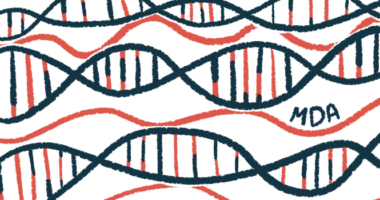Novartis Stopping Work on Branaplam as Oral SMA Therapy

Zerbor/Shutterstock
Novartis is stopping the clinical development of branaplam (LMI070), its experimental oral treatment for spinal muscular atrophy (SMA) being evaluated in a Phase 1/2 clinical trial.
According to the company’s announcement, this “difficult” decision was based on the “rapid advancements in the SMA treatment landscape in recent years,” and the fact that branaplam would “not offer a highly differentiated treatment solution for the SMA community.”
Within four years, three disease-modifying therapies became available for SMA in the U.S.: Spinraza (nusinersen, by Biogen), Zolgensma (onasemnogene abeparvovec-xioi, also by Novartis), and Evrysdi (risdiplam, by Roche’s subsidiary Genentech).
While the one-time gene therapy Zolgensma delivers to cells a healthy copy of SMN1, the mutated gene in SMA, both Spinraza and Evrysdi treat the disease by targeting SMN2, a “backup” gene that can partly compensate for the loss of SMN1-derived SMN protein. SMN is critical for motor neuron and muscle health.
Similar to Spinraza and Evrysdi, branaplam increases SMN production by targeting the SMN2 gene. In addition, the experimental therapy is an orally available small molecule like Evrysdi — which is administered once a day as a flavored liquid by mouth or feeding tube.
An open-label Phase 1/2 trial (NCT02268552) is evaluating the safety, tolerability, pharmacokinetics, pharmacodynamics, and effectiveness of branaplam, given once a week, in 40 babies up to 6 months of age with SMA type 1. (Pharmacokinetics refers to the therapy’s movement into, through, and out of the body, and pharmacodynamics to its effects on the body.)
The trial, taking place at European sites, was paused for two years due to safety concerns identified in animal studies conducted with a daily regimen while the trial was underway.
Enrollment was resumed in late 2017, and Novartis announced that the study had completed its enrollment in May 2019. The study was progressing well, with a total of 29 infants receiving the therapy, some for more than four years, the company announced toward year’s end.
Results from the trial, which had been due to conclude in February 2023, have not been disclosed.
The decision to discontinue branaplam’s development was not related to any safety or efficacy issues, and Novartis encourages trial participants to continue with branaplam until an alternative therapy is arranged to maintain continuous care.
Treatment alternatives will be determined on a case-by-case basis, tailored to the needs of each child, in collaboration with trial investigators, the company stated.
“We would again like to thank the parents who have children in this study for their courage and commitment,” Novartis wrote in its statement, adding “we are also grateful to the whole SMA community for your continued support and generous advice.”
Novartis will continue developing branaplam as a potential therapy for Huntington’s disease, a rare, genetic neurodegenerative disease without any approved, disease-modifying therapies.








